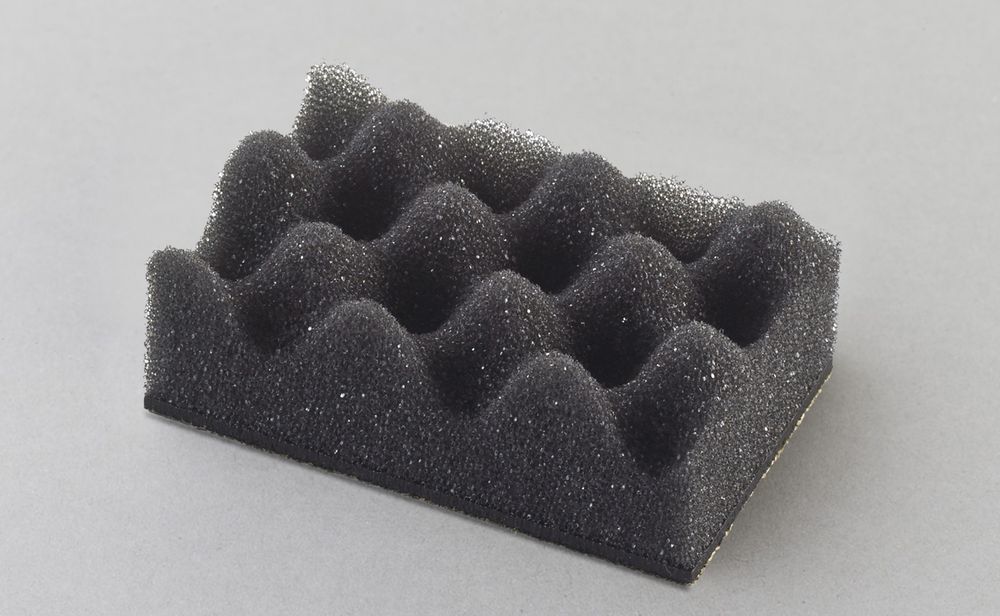Top Soundproofing Insulation Materials for Industrial Use
Industrial environments often grapple with persistent noise challenges, making the selection of effective soundproofing insulation material a key consideration. Implementing the right solutions can enhance operational efficiency, ensure compliance with noise regulations, and contribute to a safer workplace.
Acoustic insulation materials function by either absorbing or blocking sound waves, thereby reducing noise transmission and improving acoustic comfort within industrial settings. Among the most effective materials for industrial applications are Polyurethane Foam and mineral wool, both known for their superior sound attenuation properties.
Common Industrial Noise Sources and Their Impact
Industrial noise originates from various sources, each contributing uniquely to the overall soundscape. Understanding these sources is crucial for implementing targeted soundproofing strategies.
- Machinery and Equipment: Heavy presses, compressors, and generators produce continuous noise that can affect hearing and focus.
- Structural Vibrations: Imbalances or misalignments in equipment can cause low-frequency rumbling from structural vibrations.
- Electrical Systems: Transformers and switchgear may emit high-frequency humming or buzzing, adding to ambient noise.
- Ventilation and Airflow: HVAC and ventilation systems create background noise that can disrupt communication and raise stress levels.
Criteria for Selecting Effective Soundproofing Insulation Material
Choosing the appropriate soundproofing insulation material involves evaluating several key factors to ensure optimal performance in industrial settings.
- Sound Transmission Class (STC) Rating: The STC rating measures a material’s ability to block airborne sound. Higher STC values indicate better sound insulation, making this rating essential when selecting materials for noise-sensitive areas.
- Noise Reduction Coefficient (NRC): The NRC indicates how much sound a material can absorb. Materials with higher NRC values reduce reverberation and echo within a space more effectively.
- Thermal Resistance: In environments where temperature control is critical, selecting materials with appropriate thermal resistance ensures both acoustic and thermal insulation needs are met.
- Fire Resistance: Safety regulations often require materials to meet specific fire resistance standards. Choosing soundproofing insulation materials that are also fire-resistant enhances overall safety.
- Durability and Maintenance: Durable materials that require minimal maintenance are preferable in industrial settings, where longevity and ease of upkeep are important considerations.
Top Soundproofing Insulation Materials for Industrial Applications
Selecting the right soundproofing insulation material is key for effective noise control in industrial environments. Below are some of the top materials known for their performance and suitability in such settings.
Acoustic Polyurethane Foam Panels
These panels are made from open-cell polyurethane foam, which absorbs mid to high-frequency sounds. They are commonly used in control rooms and manufacturing areas to reduce echo and improve sound clarity. Their lightweight nature allows for easy installation on walls and ceilings.
Mineral Wool (Rock Wool)
Mineral wool is produced by spinning molten rock or slag into fibers, resulting in a dense, fibrous material. It offers excellent sound absorption and thermal insulation properties, making it ideal for walls, HVAC systems, ceilings, and around equipment enclosures. Additionally, its fire-resistant nature enhances safety in industrial applications.
Fiberglass Insulation
Comprising fine glass fibers, fiberglass insulation is lightweight and cost-effective. It effectively absorbs sound, reducing noise levels in HVAC systems, ductwork, and partition walls. Its versatility and ease of installation make it a popular choice in various industrial settings.
Mass Loaded Vinyl (MLV)
MLV is a dense, flexible material designed to block sound transmission. Its high mass allows it to effectively reduce noise when applied to walls, floors, or ceilings. MLV is particularly useful in wrapping pipes and machinery enclosures to contain noise at the source.
Melamine Foam
Melamine foam is a lightweight, open-cell material known for its excellent sound absorption and flame-retardant properties. It is often utilized in HVAC systems, clean rooms, and transportation industries where both acoustic performance and fire safety are priorities.
Foam Glass
Foam glass is produced from recycled glass and has a cellular structure that provides thermal and acoustic insulation. Its non-combustible and moisture-resistant characteristics make it suitable for insulating pipelines, tanks, and industrial equipment.
READ MORE: Thermal & Acoustic Insulation Materials

How to Select the Ideal Soundproofing Insulation Material for Your Project
Selecting the appropriate soundproofing insulation material for industrial applications requires a strategic approach to effectively address specific noise control needs.
- Evaluate Specific Noise Challenges
Identify whether the predominant noise is airborne (e.g., machinery sounds) or structure-borne (e.g., vibrations through floors and walls) to choose materials that target these issues effectively.
- Assess Installation Constraints
Examine the physical characteristics of the installation area, including space limitations and existing structures, to determine suitable materials and installation methods.
- Balance Performance with Budget
Compare the noise reduction capabilities of materials against their costs to ensure an effective solution that aligns with budgetary constraints.
- Consider Environmental and Safety Standards
Ensure materials comply with environmental regulations and safety standards, prioritizing non-toxic, fire-resistant, and sustainable options.
- Plan for Maintenance and Durability
Choose materials known for longevity and minimal maintenance to ensure sustained acoustic performance and reduced long-term costs.
Partner with Smartech for Smarter Soundproofing
Effective soundproofing insulation enhances operational efficiency and promotes a safer work environment. Selecting materials tailored to your facility’s specific noise challenges can significantly reduce noise levels and improve overall workplace conditions.
At Smartech, we offer a comprehensive range of high-quality acoustic insulation products designed for diverse industrial applications. Our solutions prioritize durability, performance, and compliance with safety standards, ensuring optimal results in your noise control initiatives.
Partner with Smartech to enhance your facility’s acoustic environment through reliable and effective insulation solutions tailored to your industrial needs.
Looking for More Information?
Check out our Resources or Contact Us
